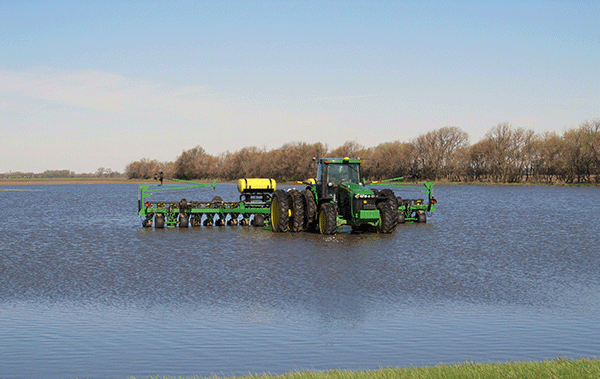Climate change is now widespread, rapid and intensifying with new data tracking a more specific timeline to act to avoid critical thresholds for agriculture and health, a new report has found.
How different regions experience climate change is another key finding from the latest Intergovernmental Panel on Climate Change (IPCC) Report, released today (9 August), which said what people experience is often very different to the global average.
For example, warming over land is larger than the global average, and it is more than twice as high in the Arctic, researchers said.
The report also provides new estimates of exceeding 1.5 degrees of warming in the next decades, and found that unless there are “immediate, rapid and large-scale reductions” in greenhouse gas emissions, limiting warming to 1.5 or two degrees will be beyond reach.
“This report is a reality check,” said IPCC working group co-chair Valérie Masson-Delmotte. “We now have a much clearer picture of the past, present and future climate, which is essential for understanding where we are headed, what can be done, and how we can prepare.”
For 1.5 degrees of global warming, there will be more heatwaves, longer warm seasons and shorter cold seasons, while at two degree of global warming, heat extremes would more often reach critical tolerance thresholds for agriculture and health, the report said.
And it’s not just about heat as it outlined there will be different changes in different regions, including intense rainfall and changes to the water cycle, thawing of permafrosts, coastal flooding, and intensified heat in urban areas.

While many of the changes observed in the climate are unprecedented and already in motion – such as continued sea level rise – researchers said strong and sustained reductions in emissions of C02 would still limit climate change.
Benefits for air quality would come quickly, researchers said, but it could take 20-30 years to see global temperatures stabilise.
“It has been clear for decades that the Earth’s climate is changing, and the role of human influence on the climate system is undisputed,” said Masson-Delmotte. Yet the new report also reflects major advances in the science of attribution – understanding the role of climate change in intensifying specific weather events such as extreme heatwaves and heavy rainfall.
The report was clear that human actions still have the potential to slow climate change, stating there is “clear” evidence that CO2 is the main driver, while other greenhouse gases and air pollutants also affect the climate.
“Stabilising the climate will require strong, rapid, and sustained reductions in greenhouse gas emissions, and reaching net zero CO2 emissions. Limiting other greenhouse gases and air pollutants, especially methane, could have benefits both for health and the climate,” said another co-chair Panmao Zhai.















You only have to look in your back garden to see evidence of climate change.. I remember bonfire nights in the 50’s were mostly frosty. Bonfire nights with my own children in 80’s and 90’s mostly frost free – same part of the country. Roses now often out end April – whatever happened to flaming June? ( Although this year was different)